All Stories
-
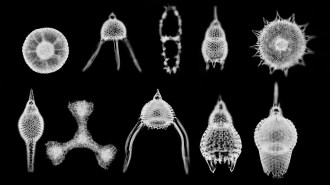 Earth
Earth50 years ago, scientists named Earth’s magnetic field as a suspect in extinctions
In 1970, researchers saw a link between magnetic pole reversals and extinctions. Fifty years later, scientists have uncovered more suggestive examples but no strong evidence of a direct link.lamb
-
 Life
LifeMonarch caterpillars head-butt each other to fight for scarce food
Video experiments show that monarch caterpillars turn aggressive when there’s not enough milkweed to go around.
-
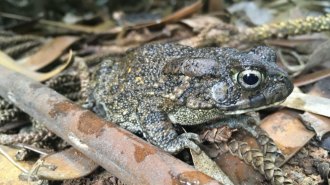 Animals
AnimalsGuttural toads shrank by a third after just 100 years on two islands
Introduced in the 1920s, toads on two islands in the Indian Ocean have shrunken limbs and bodies that may be evidence that "island dwarfism" can evolve quickly.
By Jake Buehler -
 Health & Medicine
Health & MedicineNew Pfizer results show its COVID-19 vaccine is nearly 95% effective
With final results – including showing its vaccine is 94 percent effective in the elderly – Pfizer is poised to request emergency use authorization.
-
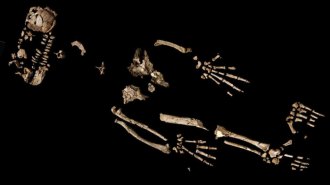 Anthropology
AnthropologyArdi and her discoverers shake up hominid evolution in ‘Fossil Men’
A new book covers the big personalities, field exploits and scientific clashes behind the discovery of the hominid skeleton nicknamed Ardi.
By Bruce Bower -
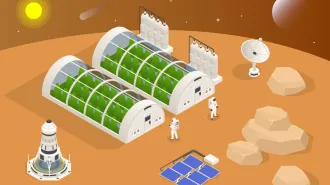 Planetary Science
Planetary ScienceFarming on Mars will be a lot harder than ‘The Martian’ made it seem
Lab experiments developing and testing fake Martian dirt are proving just how difficult it would be to farm on the Red Planet.
-
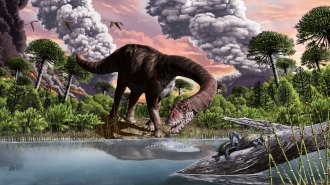 Paleontology
PaleontologyHow massive long-necked dinosaurs rose to rule the Jurassic herbivores
New dinosaur fossil dates to same time as a volcanic surge, suggesting ensuing changes in plant life allowed these long-necked giants to emerge.
-
 Animals
AnimalsHundreds of new genomes help fill the bird ‘tree of life’
More than 10,000 bird species live on Earth. Now, researchers are one step closer to understanding the evolution of all of this feathered diversity.
By Jake Buehler -
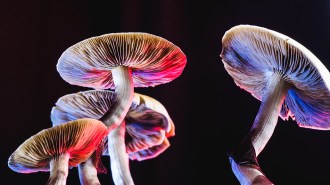 Neuroscience
NeurosciencePsilocybin may help treat depression, a small study finds
Researchers found that a compound in psychedelic mushrooms eased depression symptoms, but larger studies are needed.
-
 Health & Medicine
Health & MedicineModerna says its COVID-19 vaccine is nearly 95 percent effective
Another coronavirus vaccine appears to be very effective in preventing people from developing COVID-19 symptoms.
-
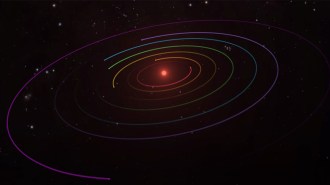 Space
SpacePlanets with many neighbors may be the best places to look for life
Solar systems with many planets in circular orbits suggest a calm life-nurturing past, while single exoplanets with eccentric orbits hint at chaos.
-
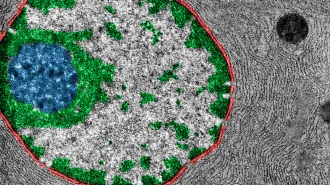 Genetics
GeneticsA key to the mystery of fast-evolving genes was found in ‘junk DNA’
A new study challenges a long-held belief that essential genes change little over time.